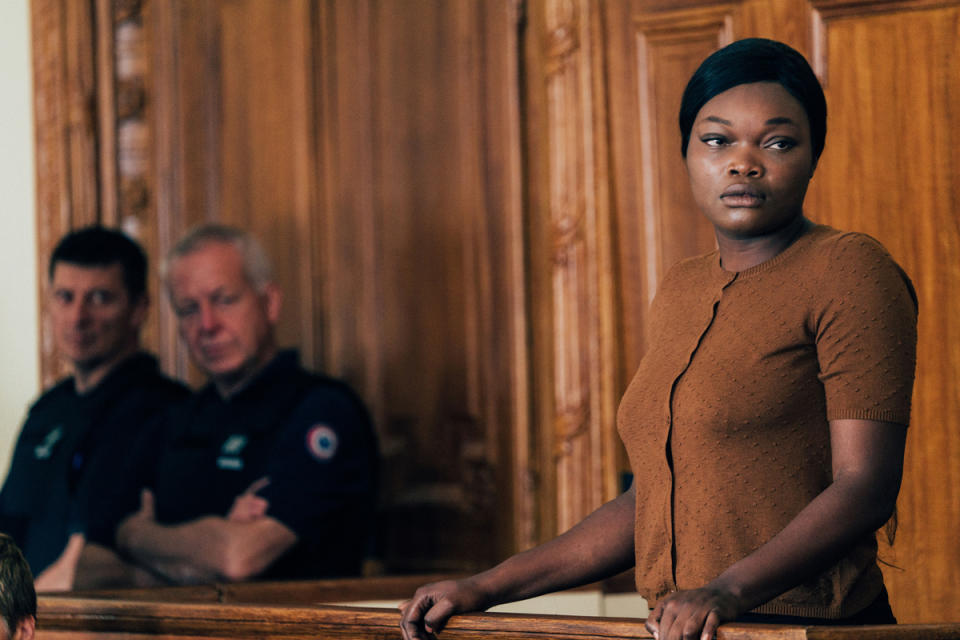Fresh Talent Revives Gallic Cinema
- Oops!Something went wrong.Please try again later.

Exploring Paris’ working-class suburbs with a fresh set of eyes while reframing the immigrant experience under a more incisive lens, a dynamic generation is blazing new trails in French cinema.
And if artists like “Saint Omer” filmmaker Alice Diop, “Athena” co-writer Ladj Ly, and “The Gravity” writer/director Cedric Ido share little in common but age – interestingly enough, all were born within one or two years of one another – the group’s shared spotlight in Venice and Toronto certainly reflects a rise in opportunity for diverse perspectives.
More from Variety
“Today, we do see renewal,” says Unifrance managing director Daniela Elstner. “There’s an altogether new breath, a young generation looking to change, to dare, and to propose new kinds of films, [and with that] a willingness on the part of festival programmers to welcome these filmmakers into main competitions a little bit faster than before.”
Of course, opportunities tend to compound and build, so before something like Ly’s “Les Miserables” could launch to international heights (and robust international sales) out of a Cannes competition slot, the French industry had to take the chance on a little-known director with a first-time feature. Producers Toufik Ayadi and Christophe Barral were more than willing to place that bet.

“The industry has to accept that we need constant renewal, today and always,” says Ayadi, who produced both Ly’s “Les Miserables” and Diop’s “Saint Omer” through his Srab Films banner. “We need fresh blood and young voices, and that can be a challenge, because renewal takes time and effort.”
Barral and Ayadi got their start in short film, producing more than 30 award-winning titles including breakthrough non-fiction works from Ly and Diop. When the producing duo launched their features-driven Srab banner in 2016, they did so in large part to help guide their stable of talent into the larger industry.
“The short format is for research and development,” says Barral. “We looked for people with new energy and followed them along. Ladj and Alice were both very different, opposites even, but they had new voices. And directors of first-time features film need to be accompanied. It’s a real passage, so they need that support.”
While the “Saint Omer” producers helped light the path from short documentaries to narrative features, filmmakers like Ly and Houda Benyamina (“Divines”) have looked further upstream.
In 2006, Benyamina launched the 1000 Visages (1000 Faces) initiative to help democratize access to the film world by offering underprivileged youths a series of artistic residencies and workshops. For his part, Ly opened the Kourtrajmé Film School in 2018. Named for a mid-90s film collective co-founded by Ly and “Athena” director Romain Gavras (an advisor and partner on the project), the Kourtrajmé School operates free of charge, welcoming students with no prior conditions or pre-requisites to offer three professional curricula.
Now with campuses in Montfermeil (site of Ly’s “Les Miserables”), Marseilles, Dakar, and Madrid, the program has already bore fruit. Selected for the program’s inaugural session, director Daouda Kanouté would go on to make two shorts, “Twinning” and “Frontier,” both produced by Ayadi and Barral. Today the up-and-coming Kanouté is developing the latter into a feature with the Srab producers.
“We’ll never stop making shorts,” says Ayadi. “Not only do you meet new people, you also forge conditions and ways of working. You get to better know the filmmaker, to build trust. And these projects are built on belief, feeling, energy, and trust.”
On the international side, a healthy marketplace for genre fare has also opened new avenues of opportunity – especially for heterodox talents. Premiering in Toronto’s Platform section, Cedric Ido’s sci-fi thriller “The Gravity” gives the banlieue-potboiler an intergalactic edge, offering a decidedly Manga-influenced spin on the French social drama.
“Cedric’s film is political in a way, but he prefers to emphasize poetry and mysticism,” says producer Emma Javaux. “It’s avant-garde in the sense that it’s a genre film mixed with a banlieue drama, and so we oscillate between the two. It’s a new way of making social cinema, but also a new way of making genre.”
Ahead of this sophomore feature, the Franco-Burkinabe Ido honed a unique voice, recounting social, racial and political unrest within pop-spectacle vernacular – a style that in many ways speaks to more global taste. “The foreign market – Americans, but also the Koreans and the Japanese – instinctively understand this kind of cinema,” says Javaux. “They know it well. So the international field should more easily open to us.”
Best of Variety
Sign up for Variety’s Newsletter. For the latest news, follow us on Facebook, Twitter, and Instagram.

